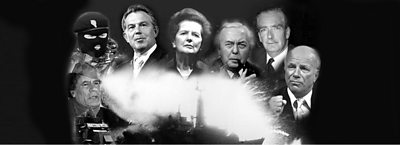From the General Strike in 1926 to the Hutton Inquiry in 2003-4, the history of the Βι¶ΉΤΌΕΔ is littered with rows over editorial policy and standards that made headline news.
Our experience of our own mistakes and of resisting external pressures in such episodes has helped not only to flesh out editorial guidelines - as in the case of Yesterday's Men (1971) and the Carrickmore incident (1972) – but also to reinforce such values as the proper treatment of staff, as in the Mongoose case (1936).
Discover more about the following episodes in the Βι¶ΉΤΌΕΔ's history.
The Βι¶ΉΤΌΕΔ and the Government
-
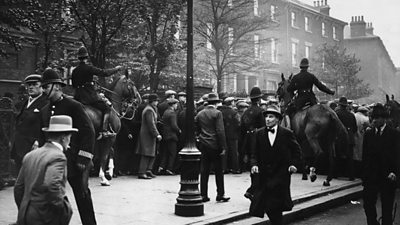
The General Strike - 1926
Broadcasting was still in its infancy when the values laid down by young John Reith, the founding Director-General, were first put to the test. -
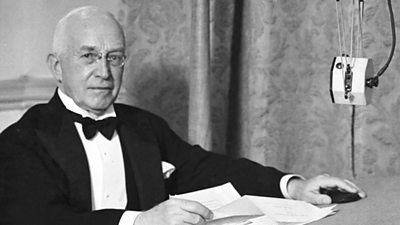
The Hashagen affair - 1932
Governments have always had the power to ban programmes, but those powers have never been applied directly. The Hashagen affair in 1932 was one of the first such episodes, and painful lessons were learned. -
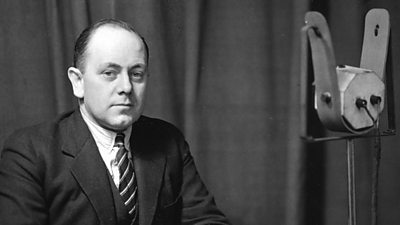
The Vernon Bartlett Affair - 1933
The Vernon Bartlett affair was very much a row of its time. Such a furore would be unthinkable today, but in 1933 Bartlett's on-air commentary on a news event caused a considerable stir. -
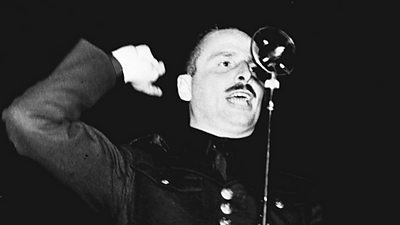
The Citizen and His Government - 1935
Part of the Βι¶ΉΤΌΕΔ's response to the Depression was a series about politics as part of an initiative to empower ordinary people in public affairs. But it ran into opposition when the producers decided that The Citizen and His Government, a string of radio talks, should include contributions from two figures at extreme ends of the political spectrum. -

The Mongoose Case - 1936
The Βι¶ΉΤΌΕΔ Chairman, R C Norman, and senior managers allowed themselves to become embarrassingly embroiled in a private dispute between a member of staff and a member of the public. -
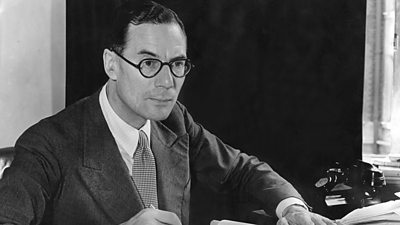
Party Manners - 1950
Today, politics is fair game for broadcast comedy ranging from Yes, Minister to House of Cards and The New Statesman, and indeed Party Manners, Val Gielgud's fictional tale of a Labour minister facing a comic dilemma over nuclear energy in 1950, aroused little protest when performed as a play, first on the stage and then on Βι¶ΉΤΌΕΔ radio. -

The Suez Crisis - 1956
A recurring challenge for the Βι¶ΉΤΌΕΔ is its stance when the country goes to war. In World War 2 its programmes and journalism had reflected a nation squarely behind the struggle against the Nazi threat. But the question is less clear-cut when the nation itself is divided over the decision to mobilise. -
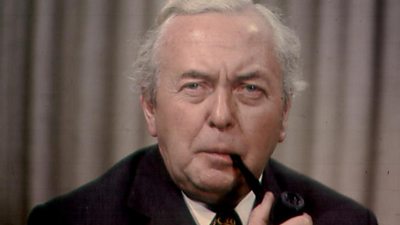
Yesterday's Men - 1971
Straight-dealing is one of the principles of Βι¶ΉΤΌΕΔ programme making, but it has not always been followed. The Βι¶ΉΤΌΕΔ enraged Harold Wilson and his outgoing government after they lost the 1970 General Election. They were effectively tricked into taking part in a programme that would ridicule them. -

The Carrickmore Incident - 1979
A Panorama team making a programme in the Republic of Ireland followed their instincts - but not Βι¶ΉΤΌΕΔ rules - when they were tipped off about IRA activity in a border village. They went to Carrickmore and filmed hooded gunmen holding up traffic in a protest against increased activity by British security forces in the border area. -

The Falklands Conflict - 1982
Not since Suez had Britain mobilised such an invasion force, and the Βι¶ΉΤΌΕΔ recognised early on the potential for a public spat if it was put under pressure to support the campaign in the way it had been pressured to support the 1956 offensive. -

Real Lives - 1985
A month after Mrs Thatcher declared that terrorists should be starved of the "oxygen of publicity", she learned that a senior Republican paramilitary had been interviewed for a forthcoming Βι¶ΉΤΌΕΔ Real Lives documentary, At the Edge of the Union. -

The Libyan Bombing - 1986
The Thatcher government took a strong stance against terrorism in Northern Ireland and elsewhere, and had particular views about the way broadcasters reported both acts of terrorism and the war against terrorism. The Libyan assault of 14 April 1986 was one such incident. -
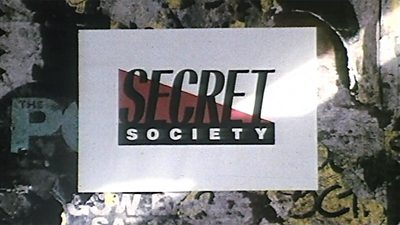
The Zircon Affair - 1986-7
An investigative programme into a 'state secret' about the funding of a spy satellite proved too hot for the Βι¶ΉΤΌΕΔ to handle. The Government, the security services and the Βι¶ΉΤΌΕΔ's Governors were jittery about the Secret Society series, and particularly the Zircon satellite exposΓ© that controversial freelance reporter Duncan Campbell was working on with Βι¶ΉΤΌΕΔ Scotland. -
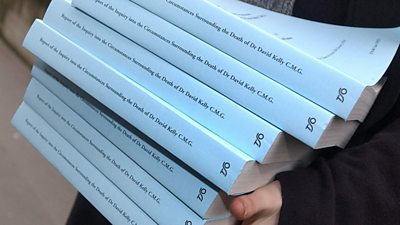
Iraq, Gilligan, Kelly and the Hutton Report - 2003
One of the most damaging episodes in the Βι¶ΉΤΌΕΔ's history was sparked by an early morning radio broadcast in May 2003. It would lead to the departures of both the Chairman and the Director-General in the space of 24 hours.
